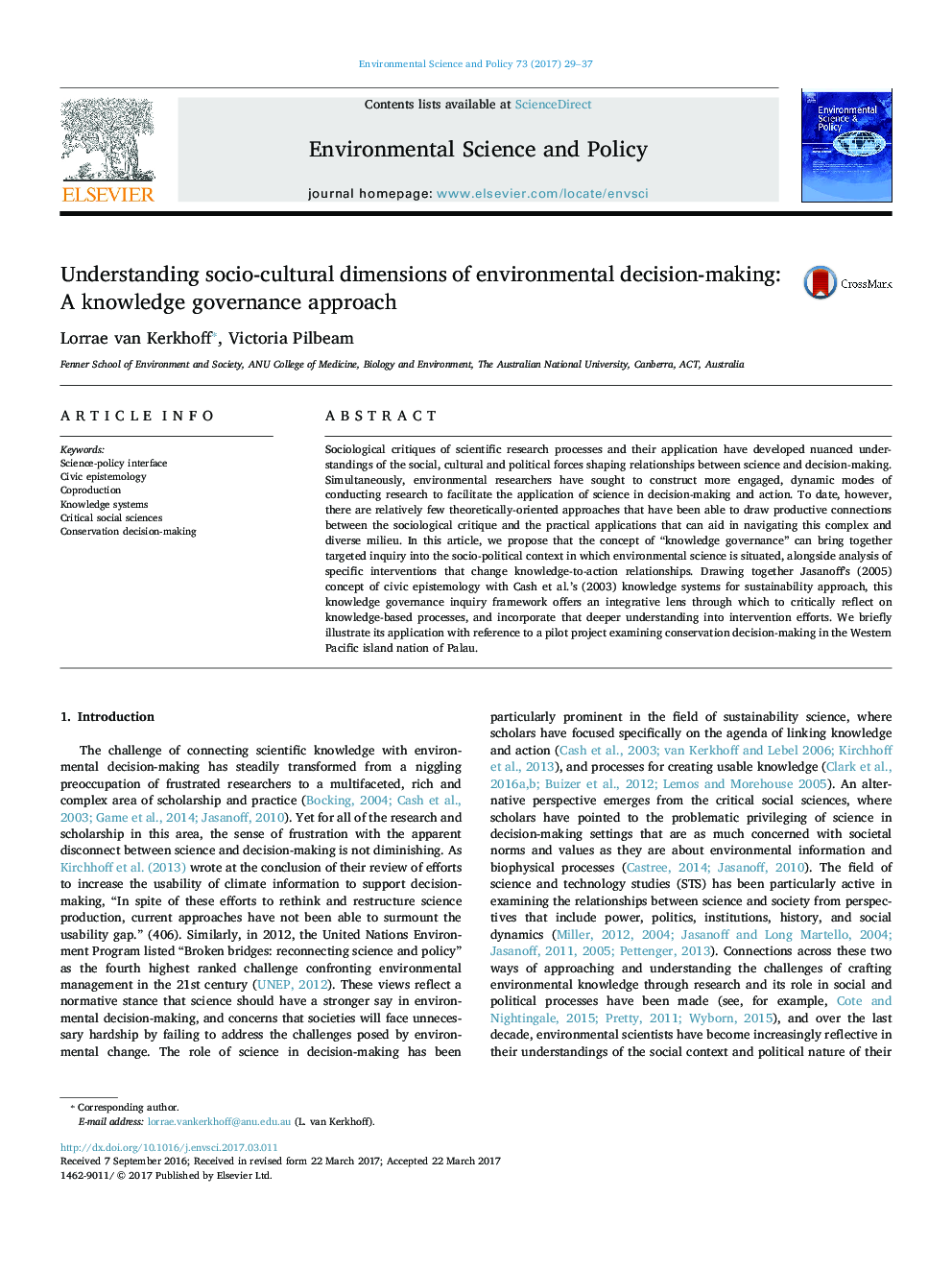| Article ID | Journal | Published Year | Pages | File Type |
|---|---|---|---|---|
| 5115847 | Environmental Science & Policy | 2017 | 9 Pages |
Abstract
Sociological critiques of scientific research processes and their application have developed nuanced understandings of the social, cultural and political forces shaping relationships between science and decision-making. Simultaneously, environmental researchers have sought to construct more engaged, dynamic modes of conducting research to facilitate the application of science in decision-making and action. To date, however, there are relatively few theoretically-oriented approaches that have been able to draw productive connections between the sociological critique and the practical applications that can aid in navigating this complex and diverse milieu. In this article, we propose that the concept of “knowledge governance” can bring together targeted inquiry into the socio-political context in which environmental science is situated, alongside analysis of specific interventions that change knowledge-to-action relationships. Drawing together Jasanoff's (2005) concept of civic epistemology with Cash et al.'s (2003) knowledge systems for sustainability approach, this knowledge governance inquiry framework offers an integrative lens through which to critically reflect on knowledge-based processes, and incorporate that deeper understanding into intervention efforts. We briefly illustrate its application with reference to a pilot project examining conservation decision-making in the Western Pacific island nation of Palau.
Related Topics
Physical Sciences and Engineering
Energy
Renewable Energy, Sustainability and the Environment
Authors
Lorrae van Kerkhoff, Victoria Pilbeam,
